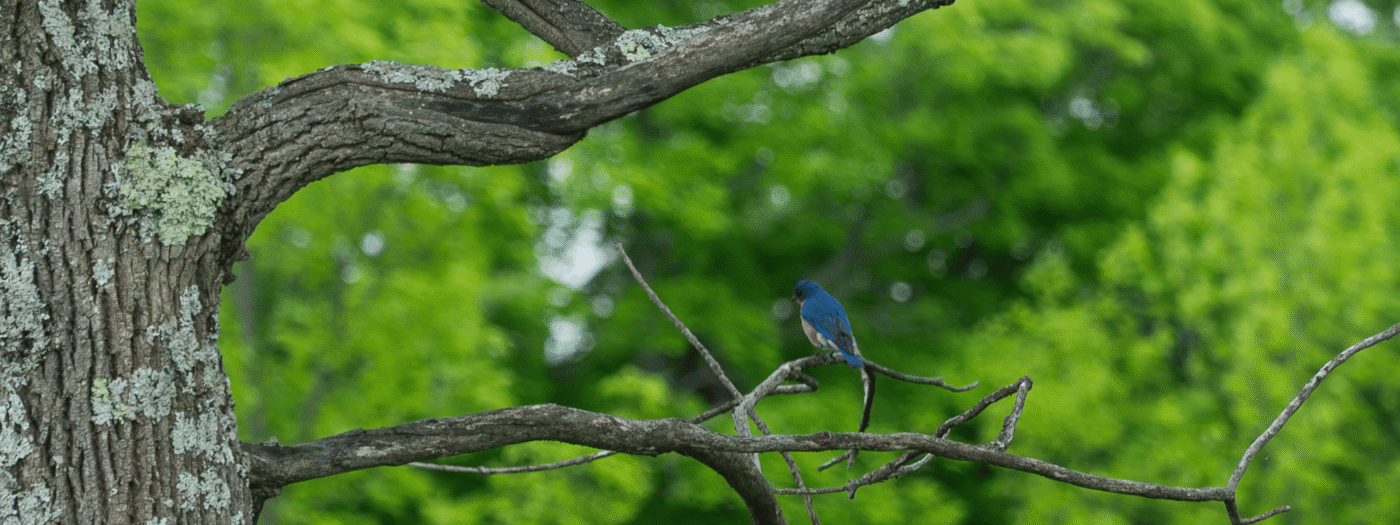To increase the community’s awareness of The Couchiching Conservancy’s work, we’re writing a monthly column in Orillia Matters. This was originally published on Oct. 22nd.
“Do You Hear That? It’s The Call Of The Great Outdoors”
Over lunch this spring, a colleague at The Couchiching Conservancy told us she heard a Loggerhead Shrike in her backyard.
“How did you know it was a Shrike?” someone asked.
“I know the sounds of the birds in my yard, so when I heard something different I recorded it and looked it up on the Merlin app,” she replied.
“Oooooh,” chorused my coworkers.
They were impressed for two reasons. Loggerhead Shrikes are rare and classified as Endangered in Ontario. Also, Shrikes are vicious. They impale their prey on thorns or barbed wire, sometimes saving them for later. If you’re ever lucky enough to pass by a grasshopper-kebab in a bush, you’ve seen the work of a Loggerhead Shrike. My colleagues were jealous.
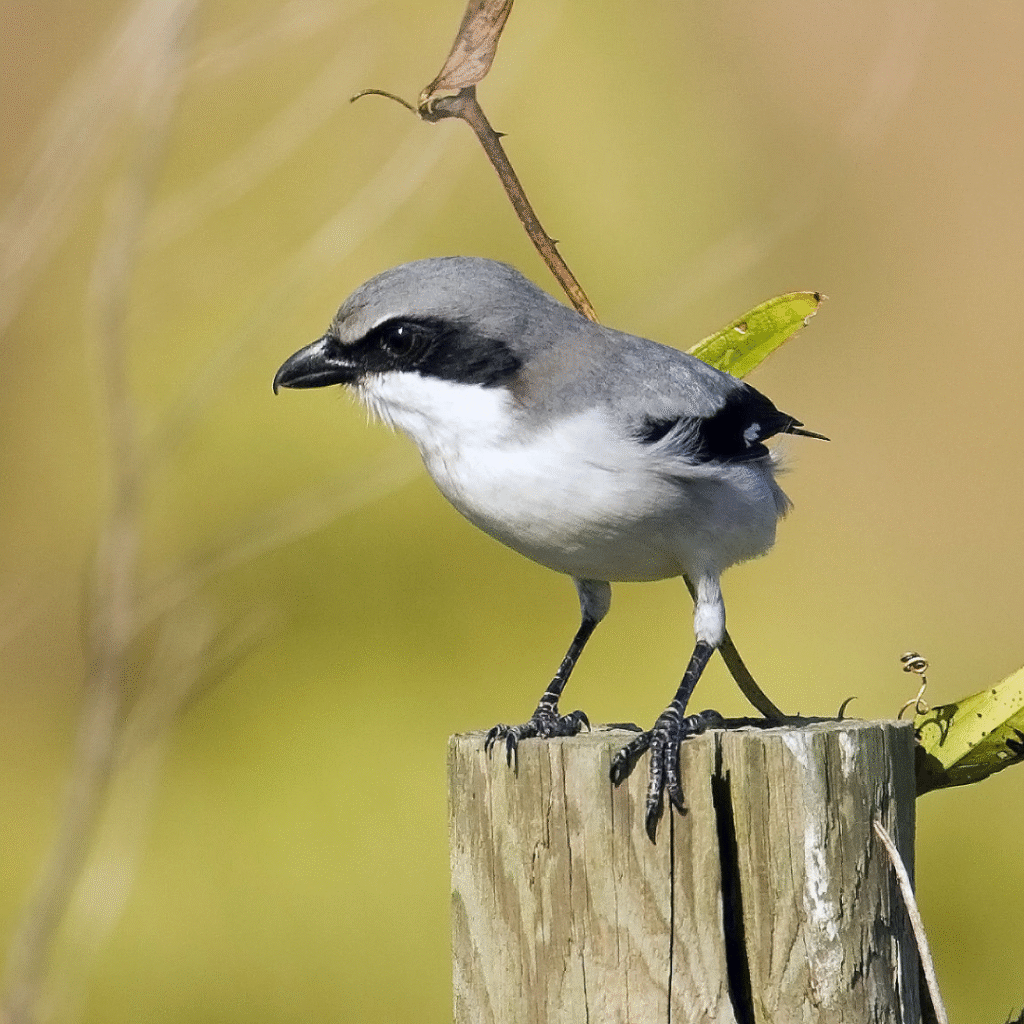
I was still stuck on the fact she knew what her backyard sounded like. This was not a dimension of my patio I’d really considered.
This was in April. Since then I’ve spent considerable time listening.
It has connected me to nature in a way I wasn’t aware I was missing. For the last three seasons, I’ve been drinking my morning coffee outside and have learned the calls of my neighbourhood. Crows, Blue Jays and Chickadees were the easiest. Robins, Sparrows and Wrens came next. Slowly I became acquainted with Nuthatches, Goldfinches and Cardinals. Then came Phoebes, Black-throated Green Warblers and Brown-headed Cowbirds.
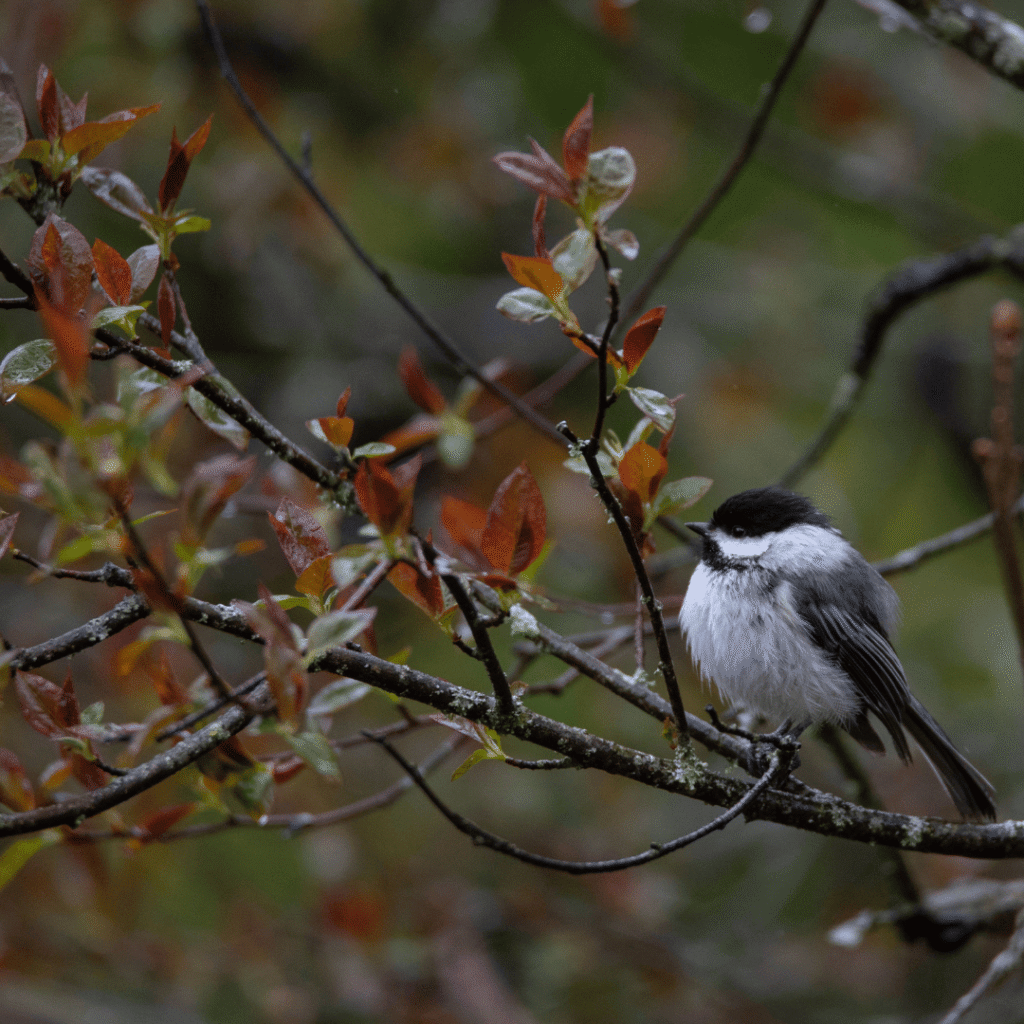
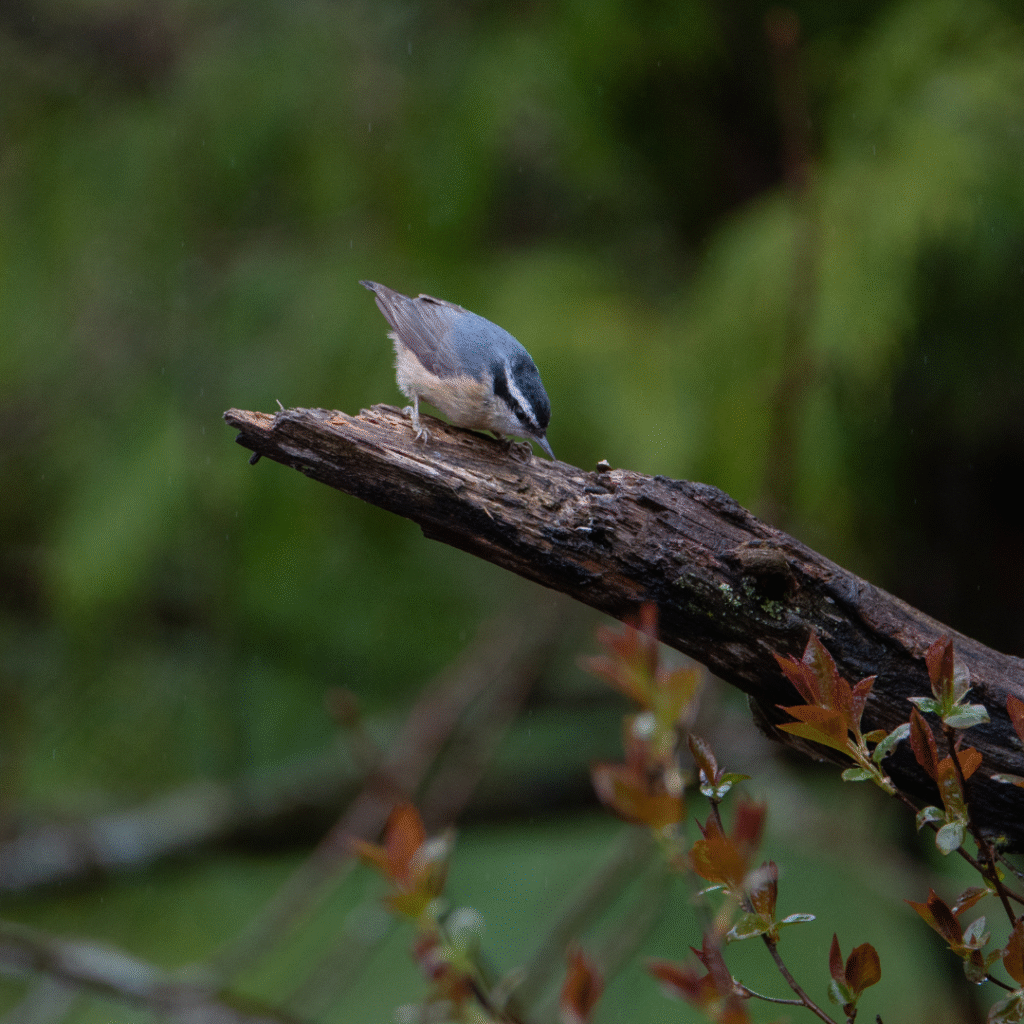
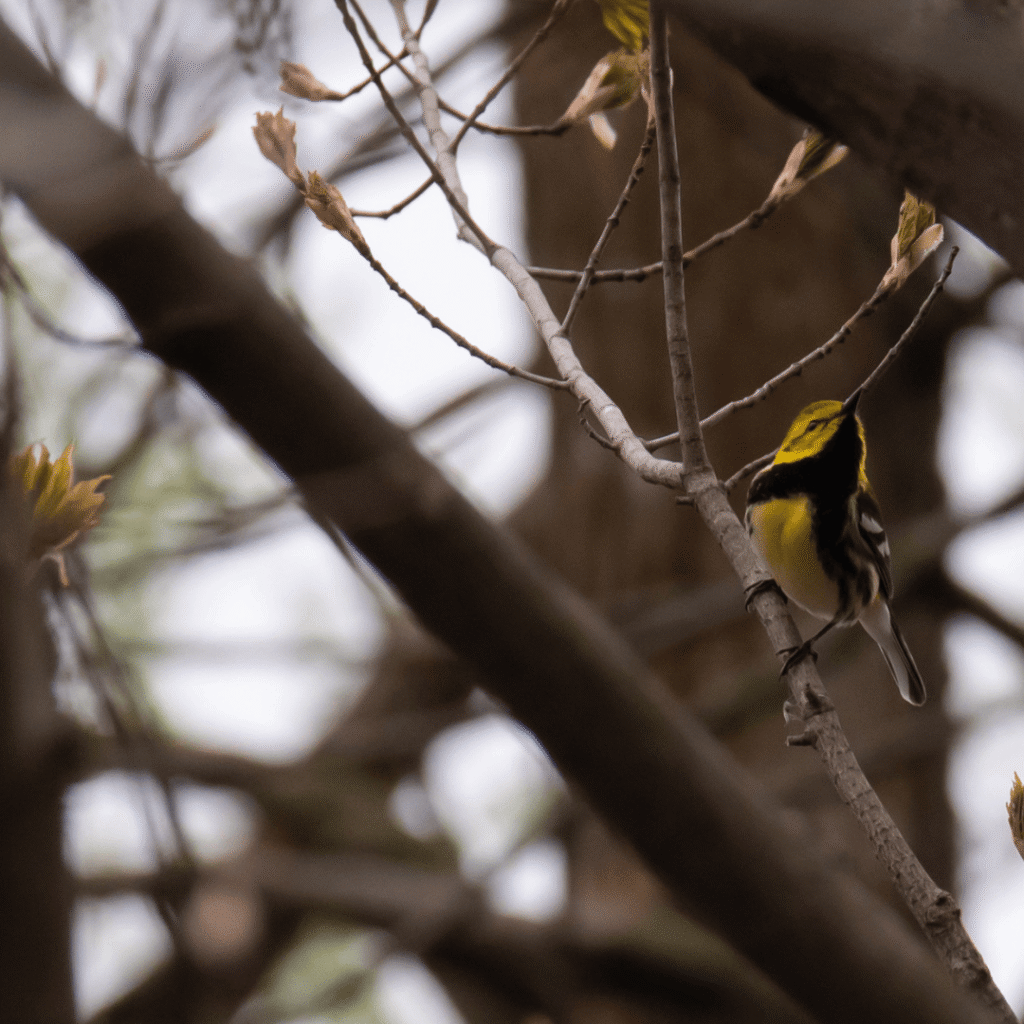
“I’ve spent considerable time listening. It has connected me to nature in a way I wasn’t aware I was missing”.
What I like best about learning bird calls is that it pulls my thoughts from worries and to-do lists. I believe they call this being present. Sadly, there are days when the only time I’m outside is the 25 second walk to my car. When days are filled with commuting, swearing at Outlook Calendars, looking for the aisle that sells light bulbs, figuring out why the pdf won’t print, and begging children to just do your dishes, it’s easy not to notice the other species with whom we share this planet. Ten minutes listening to the birds in your yard can remind you of the planet’s cycles like migration or nesting. When you notice a Phoebe’s shrill call wakes you at 5:30, you also note when it doesn’t, meaning her brood must have fledged and the cycle is beginning again.
At Couchiching Conservancy, we’ve long known, the more people are aware of, and interested in, the cycles of nature happening outside our homes, the more they become passionate about protecting them. It’s why we have hundred of volunteers monitoring the presence of Monarch butterflies, amphibians, reptiles and bats on our nature reserves. It’s why we’re hosting our first Birds, Beer and Bingo event at Brewery Bay in November. We thought it would be a fun way to introduce people to what can feel like an intimidating, but so rewarding, topic: bird calls.
Every year Couchiching Conservancy publishes Passport to Nature: a booklet of a dozen family friendly events to connect people to the outdoors. You’re welcome to stop by our office at Grant’s Woods Nature Reserve on Division Road West to pick one up. Or you can always subscribe to our newsletter so you don’t miss the next Birds, Beer and Bingo. This one’s sold out.
I’m happy I’m not the only one yearning to connect with something beyond my inbox.
This is the latest in a series of columns by Meg Whitton formerly of Bounce Radio, now working in conservation at The Couchiching Conservancy. The Couchiching Conservancy is a non-profit land trust that protects over 15 000 acres of land in the Orillia region.

